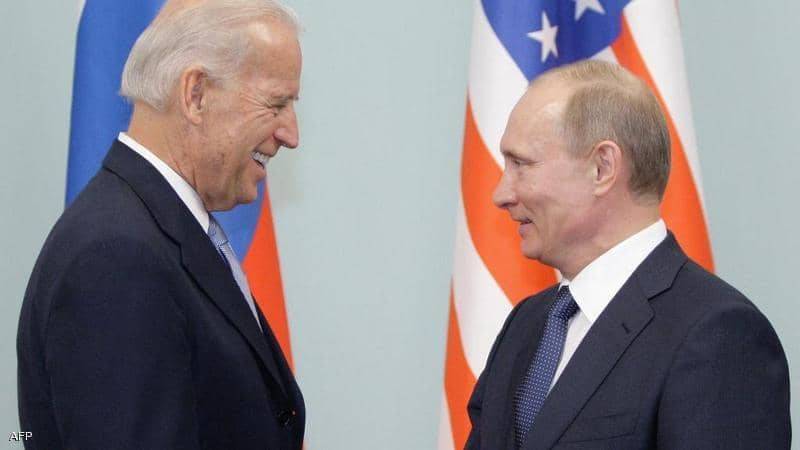Recent statements by U.S. President Joe Biden regarding the need to "end the rule of Russian President Vladimir Putin" have sparked wide international interest. While some consider these remarks to be merely a "slip of the tongue," others affirm that they reflect a genuine desire and a primary goal of the United States. Since taking office a year ago, Biden has made several verbal missteps, amidst growing concern in American political circles about the health and mental fitness of the oldest U.S. president at 79 years old.
Speaking from the royal castle in Warsaw in response to Russia's military invasion of Ukraine, Biden stated that Putin "cannot remain in power," considering that his "war on Ukraine represents a strategic failure for Moscow." He emphasized that Russia "will not be among the twenty strongest economies in the future due to the war in Ukraine." Security expert Jasem Mohammed noted that Biden's comments in Warsaw about the necessity of ending Putin's rule were "out of line and diplomatically inappropriate, receiving much criticism from Moscow." In an interview with Sky News Arabia, he added that "Washington quickly clarified the matter through Secretary of State Antony Blinken, stating that there is no strategy to change or end Putin's rule as it represents interference in Russian politics."
Regarding whether the overthrow of Putin would be in America's interest, Mohammed stated that "it is beyond the capability of the United States, but undoubtedly, Putin's existence is a significant annoyance for the U.S. administration, as he adopts bold policies in favor of his country and takes a firm stance against Washington, believing in policies that impose the status quo, as seen in Ukraine."
Similarly, Iraqi analyst Hashem Abdul Karim stated that Biden's "slip of the tongue reflects America's intentions and goals." He remarked that the ongoing war in Ukraine is "one of the effective tools to change the regime in Russia by undermining Putin's popularity and providing significant support to Kyiv, which increases Moscow's losses and shakes Russian confidence in their military capabilities, as well as the impacts of sanctions on the domestic front." Abdul Karim further noted that "without the war in Ukraine, the United States would not have been able to gather such European support against Russia, consequently destroying Moscow's economic ties with the continent to serve U.S. interests." He pointed out that the war in Ukraine is "a quagmire that Russia has fallen into due to American tactics so that it does not have to fight on multiple fronts, allowing Washington to focus on countering China's influence," asserting that "Moscow needs several years to regain its economic standing after facing the largest sanctions package in its history."
In reaction to Biden's statements, French President Emmanuel Macron urged for restraint "in word and deed" while dealing with the Ukrainian conflict. Macron told France 3 television on Sunday, "I would not have used this kind of language as I continue to engage in dialogue with Putin," referring to recent "tense" phone calls between the two leaders to discuss the ongoing war in Ukraine.
German Chancellor Olaf Scholz stated that regime change in Russia "is neither an objective of NATO nor of the U.S. president." He added in an interview with ARD German television, "I had the opportunity to discuss these issues at length with him (Biden) at the White House." When asked by a reporter if he was calling for regime change in Russia, Biden responded while leaving a church in Washington after attending mass: "No," seemingly retracting what his statements had stirred up.
Since the beginning of the military operation in February, the U.S., Europe, Britain, and several Asian countries have imposed the largest sanctions in history on Russia, which included isolating Moscow from the SWIFT financial system and banning the import of Russian oil to the U.S., alongside penalties on all institutions and individuals, including Putin and his close associates.




